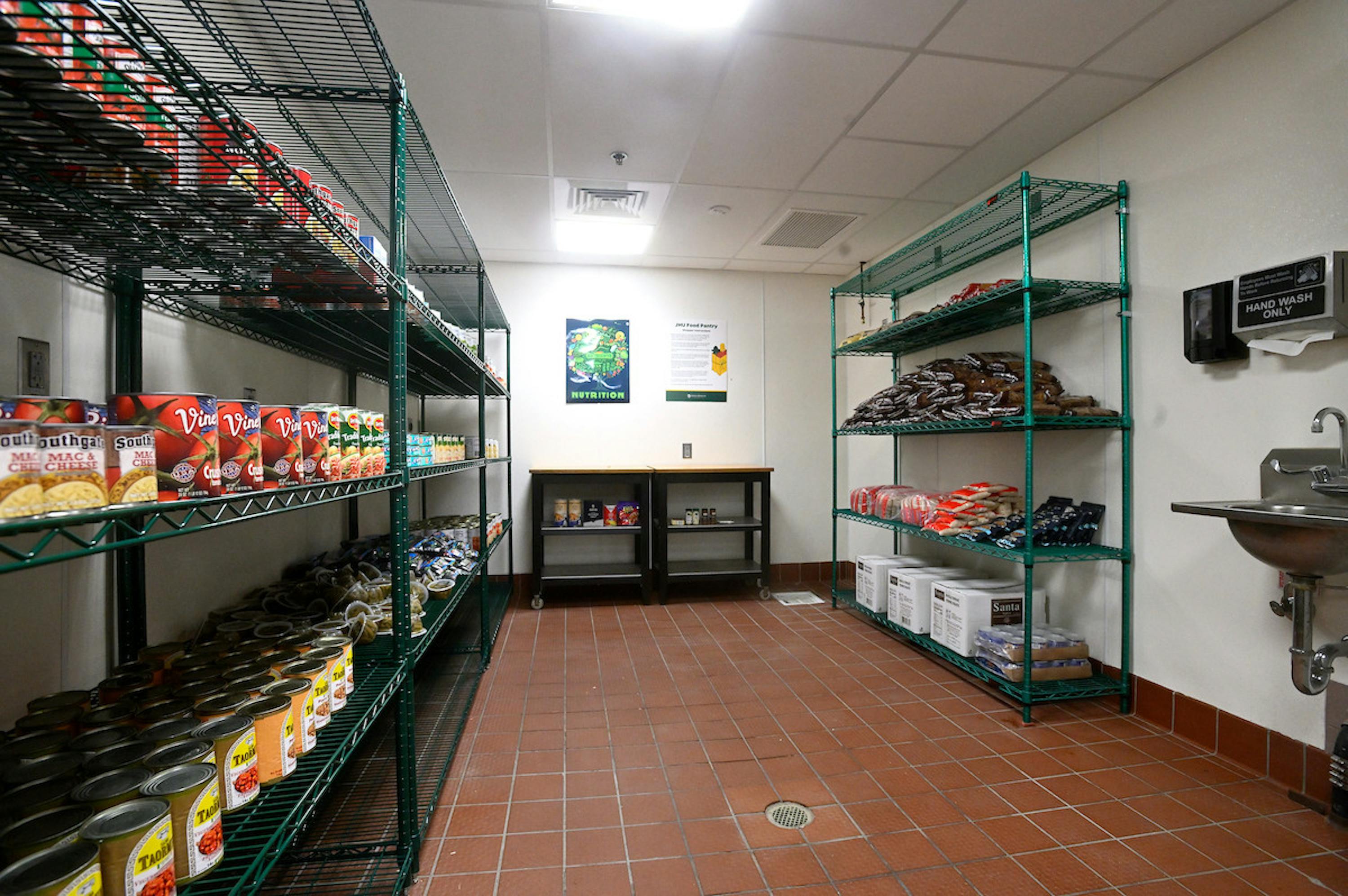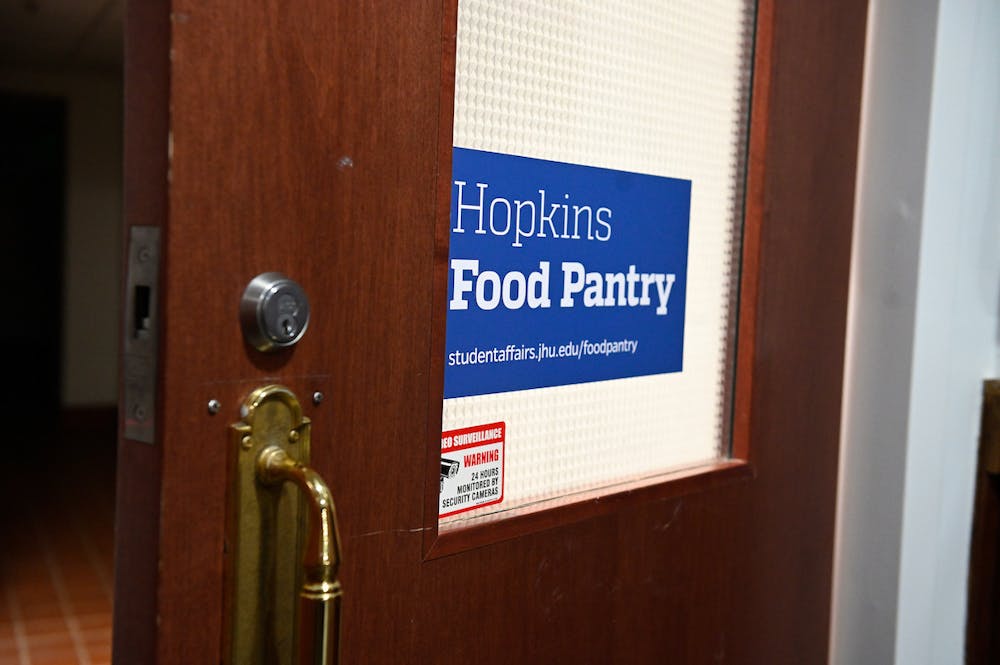Beginning this week, any Hopkins affiliate with an active JHED will be able to access a free food pantry in The LaB below Homewood Apartments as the result of a project coordinated by the Office of Student Outreach and Support (SOS).
All interested affiliates are asked to fill out an application form to receive J-Card access to the space, and all applications are accepted. Between Mondays 9 a.m. and 3 p.m. and Tuesdays 3 p.m. and 8 p.m., the space is available to all approved affiliates to shop anonymously. No appointments will be necessary to stop by.
Elizabeth Winberry, senior director of SOS, commented on the goal to make the food pantry as autonomous as possible in an interview with The News-Letter.
“There is no limitation on how much students can take,” she said. “What we ask is take what you need and understand that other shoppers are going to need items as well.”
After learning about the food pantry, sophomore Dinaka Onoh commented that she appreciated the project’s effort to respect student privacy.
“I think the student food pantry is a wonderful idea to provide food to students who may be having financial difficulties,” she said. “The anonymity makes them feel safe and not embarrassed.”
Winberry received input from a campus dietician to ensure that special religious and dietary accommodations could be taken into account. The pantry aims to stock enough ingredients for any shopper to make a home-cooked meal after their trip. The shelves will be stocked with dry goods such as rice, beans and pasta as well as fresh fruits, vegetables and eggs. If possible, the pantry also plans to incorporate student feedback into what is in stock.

The Maryland Food Bank (MFB) delivers food to the pantry every Friday. According to Winberry, the MFB is not currently charging SOS for any of their services.
The opening of the Hopkins Food Pantry comes after a two-year gap in which students did not have access to a school-sponsored food pantry. Between 2018 and March of 2020, students had access to a pantry by appointment, and the pantry’s operations were primarily student led. When campus was closed down due to COVID-19, the food pantry paused operations due to a lack of student staffers.
Winberry noted that she wanted to ensure that when the pantry reopened, it was primarily staff run in order to ensure the project’s sustainability. Eventually, Winberry hopes to involve students via Federal Work-Study or public health internships, but ultimately students will not be responsible for stocking the pantry.
“We sort of wanted to help to provide some structure to it and let students know the University is really committed to this,” she said. “Having a partnership with the MFB is huge because it takes that big chunk away of having to get donations.”
Beyond the Hopkins Food Pantry, Winberry noted that her office refers students experiencing food insecurity to multiple resources around Baltimore, such as the Baltimore Community Fridge near the Greenmount West neighborhood that offers resources in a “take what you need, give what you can” format. In addition, SOS will work with students one on one to connect them with food resources from Dining Programs.
Winberry emphasized the need to support students experiencing food insecurity.
“The pantry is supplemental. It’s not to fix a long-term need,” Winberry said. “If a student is struggling chronically with food insecurity, we want to work with them to kind of figure out what are long-term solutions.”
Winberry highlighted that the ultimate goal of the project is to help students who are struggling feel like they have some support.
“What’s really important to us is decreasing and normalizing and destigmatizing any sort of shame around this because food insecurity happens to all of us for a variety of different reasons,” she said. “I just want students to know that they can seek and reach out and ask for help.”





